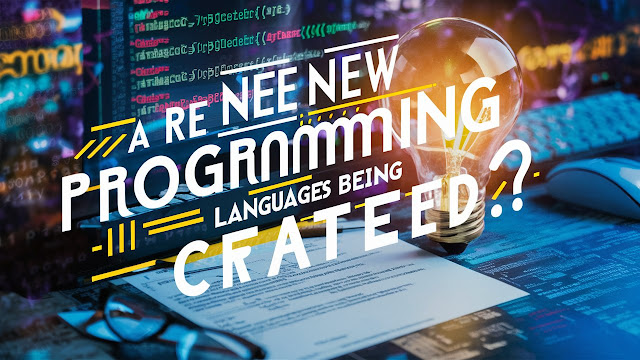Are New Programming Languages Being Created?
In the ever-evolving landscape of technology, one question that continually arises is whether new programming languages are still being created. The simple answer is yes. New programming languages are being developed regularly to address various needs, improve productivity, and enhance performance. Understanding why and how these languages come into existence provides valuable insight into the dynamic world of software development.
The Evolution of Programming Languages
Programming languages have come a long way since their inception. Early languages like machine code and assembly language were incredibly complex and challenging to work with. They required programmers to write instructions in binary or hexadecimal code, which was not only time-consuming but also prone to errors.
High-level languages like FORTRAN, COBOL, and Lisp marked the beginning of a new era. These languages introduced higher levels of abstraction, making it easier for developers to write code. They laid the foundation for more modern languages such as C, which balanced low-level control with high-level abstractions. C’s influence extends to many contemporary languages, including C++, C#, and Java.
The Necessity of New Programming Languages
Several factors drive the creation of new programming languages:
Specialized Needs: Different fields often have unique requirements that existing languages may not adequately address. For instance, data science and machine learning have led to the rise of languages like R and Python, which offer powerful libraries and tools specifically designed for these disciplines.
Enhanced Productivity: As software projects grow in complexity, there is a constant need for languages that simplify coding tasks, reduce development time, and minimize errors. Swift, introduced by Apple, exemplifies this need by offering a safer and more efficient alternative to Objective-C for iOS development.
Performance Improvements: Performance-intensive applications, such as game development and real-time systems, benefit from languages designed for speed and efficiency. Rust, known for its focus on safety and concurrency, is gaining popularity for its ability to provide memory safety without a garbage collector.
Community and Ecosystem Support: The growth of open-source communities has significantly contributed to the creation and adoption of new programming languages. Languages like Go and Kotlin have robust community support, which accelerates their development and refinement. These communities provide valuable feedback, create libraries and frameworks, and help spread the language through practical usage.
Notable New Programming Languages
Several new programming languages have emerged recently, each offering unique advantages:
Rust: Developed by Mozilla, Rust is designed to be a safe, concurrent, and practical language. It has gained a reputation for its strong emphasis on safety, particularly in preventing memory-related errors common in languages like C and C++.
Kotlin: Officially supported by Google for Android development, Kotlin is fully interoperable with Java but offers a more modern and concise syntax. Its null safety features and expressive syntax have made it a favorite among developers who work with Android applications.
Swift: Developed by Apple for iOS and macOS applications, Swift offers a more streamlined and secure coding experience compared to Objective-C. Its clean syntax, performance, and safety features have made it the language of choice for many developers in the Apple ecosystem.
Elixir: Built on the Erlang VM, Elixir is designed for scalable and maintainable applications. Its lightweight processes and robust fault-tolerance make it ideal for real-time, distributed systems. Elixir has become popular in developing applications that require high availability and scalability.
The Future of Programming Languages
The creation of new programming languages is likely to continue as technology advances and new challenges arise. Future languages may focus on areas like artificial intelligence, quantum computing, and other cutting-edge fields. Additionally, the trend towards multi-paradigm languages, which combine the best features of different programming paradigms, is expected to grow.
Languages that integrate functional programming concepts with object-oriented features, like Scala and F#, are gaining traction. These languages allow developers to write more expressive and concise code, leading to fewer bugs and more maintainable codebases.
Another trend is the development of domain-specific languages (DSLs). DSLs are tailored to specific tasks and can significantly increase productivity by providing abstractions and syntax closely aligned with the problem domain. Examples include SQL for database queries, HTML/CSS for web design, and MATLAB for mathematical computations.
Conclusion
Yes, new programming languages are continually being created to meet the evolving demands of the tech industry. These languages are designed to enhance productivity, address specialized needs, and improve performance. As technology progresses, we can expect to see even more innovative languages shaping the future of software development.
"Unlocking the World of New Programming Languages: Your Essential Queries Answered"
Why are new programming languages being created?
- New programming languages are created to address specific needs, enhance productivity, and improve performance in software development.
What are the latest programming languages in 2024?
- Some of the latest programming languages in 2024 include Rust, Kotlin, Swift, Elixir, and languages focusing on emerging fields like AI and machine learning.
Is Kotlin better than Java for Android development?
- Kotlin offers modern features, null safety, and concise syntax compared to Java, making it a preferred choice for many developers working on Android applications.
What makes Swift a preferred language for iOS development?
- Swift offers a cleaner syntax, improved safety features, and better performance compared to Objective-C, making it more efficient and enjoyable for iOS and macOS development.
How does Elixir handle real-time, distributed systems?
- Elixir, built on the Erlang VM, uses lightweight processes and robust fault-tolerance mechanisms to handle real-time, distributed systems with high availability and scalability.


